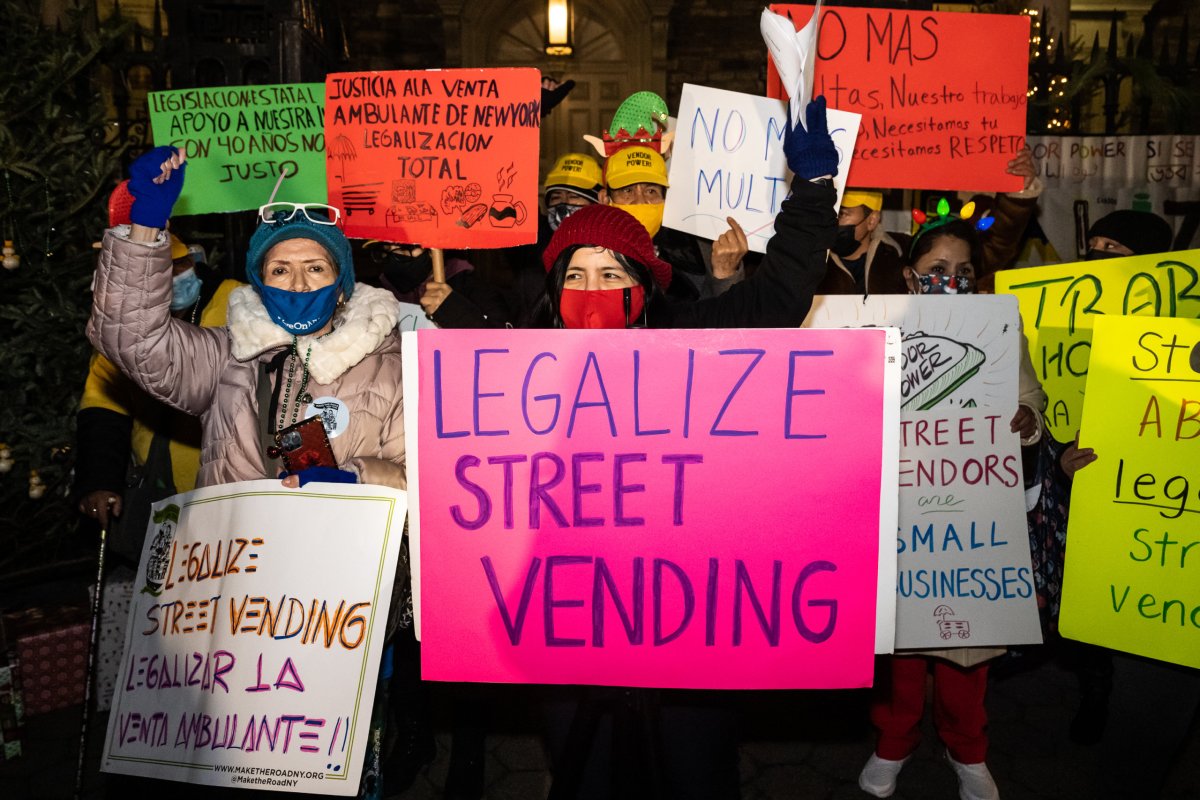The NYC Street Vendor Justice Coalition invited street vendors, advocates and lawmakers to a holiday celebration — featuring a Christmas tree decorated with hundreds of tickets vendors have received in the past year — on the steps of Saint Marks Church on Dec. 21. The coalition is urging the New York State Legislature pass a bill meant to decriminalize the street vending industry.
The legislation (S1175A/A5081A), sponsored by state Senator Jessica Ramos and Assembly member Jessica González-Rojas, would decriminalize street vendors and bring them out of the shadow into the formal economy.
The proposed legislation would ensure that a civilian agency oversees street vending compliance and regulatory oversight; formalizes the street vending industry and creates a pathway to entrepreneurship by removing the many barriers to enter the street vending industry and allowing those who are interested to obtain work permits; and erase the records of street vendors who have received a misdemeanor for street vending.
“After a long fight, many street vendors were finally able to access small business grants, unemployment, and support from the Excluded Workers Fund, only to have to give that money right back to cover punitive fines issued by the city,” Ramos said. “Street vendors are part of the entrepreneurial backbone of our local economies, and we cannot in good faith talk about a just recovery for our state without prioritizing S1175 and the legalization of street vending in 2022.”
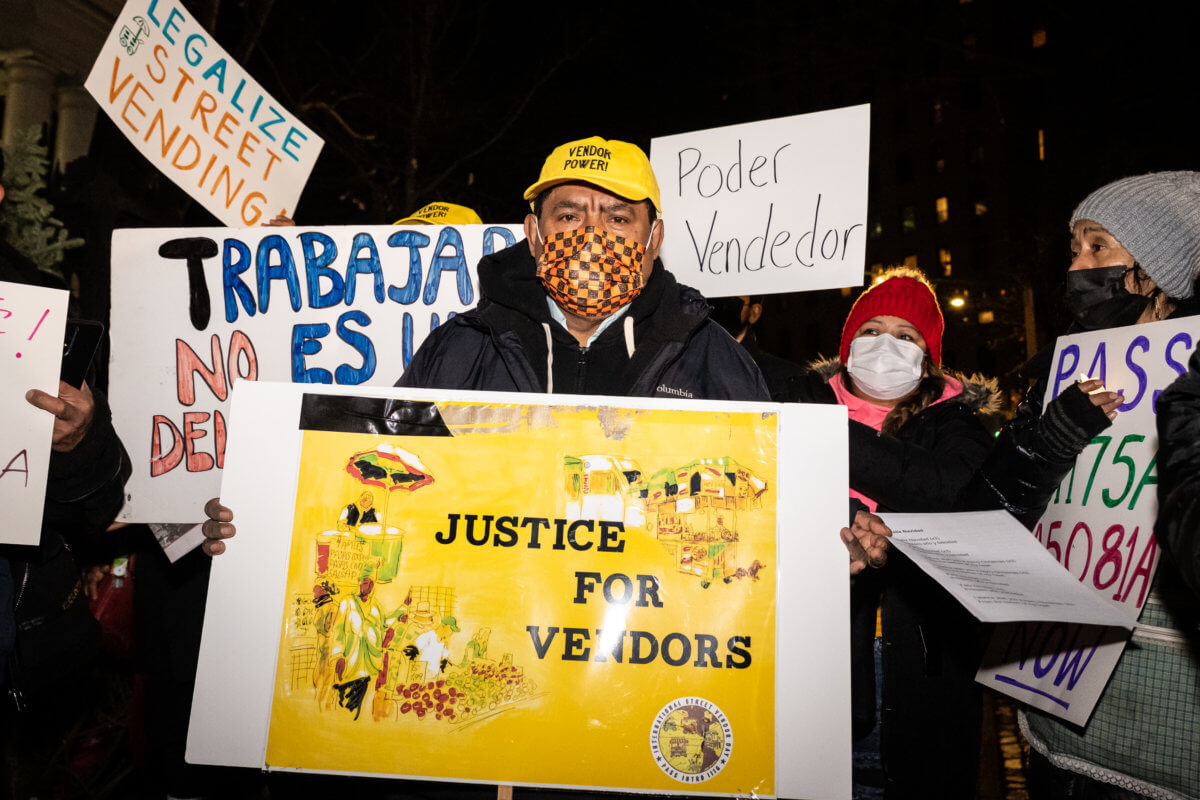
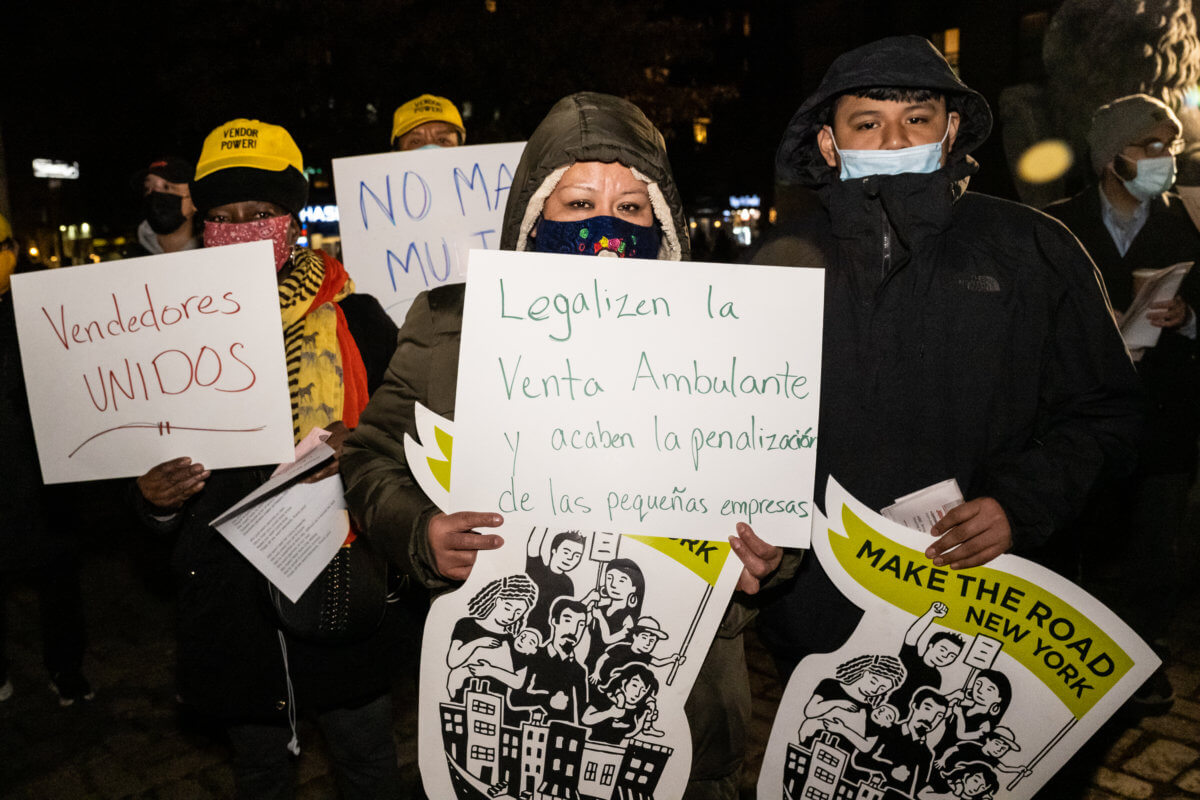
Lucio Gonzalez, a street vendor of Fordham Road in the Bronx and father of two, lost his job at the beginning of the pandemic and opened a taco stand in the Bronx to support his family.
He shared that he attempted to get a permit and the necessary documents but described the process as challenging — the
required food protection course for mobile vendors, for instance, is only available online and in English — and because of the license cap, there was no way he was able to obtain a permit.
Last summer, Lucio was fined $2,050 by the NYC Department of Health and Mental Hygiene (DOHMH) because he was operating without a permit. He tried to appeal the fines, but recently received a letter denying his request.
He said he felt encouraged when he learned about the Excluded Worker Fund in September because it meant that he would be able to pay his bills.
“Now I’m being forced to use the money I received from the State and pay the City what I owe them,” Gonzalez said. “But it’s unfair because I tried to do what was necessary to get my permit, but it is impossible to do so.”
He urged elected officials to support S1175A/A5081A “so that vendors like me no longer continue to receive such high sums in fines.”
Assembly member Harvey Epstein, who presents the East side of Manhattan, promised to push Albany to pass the legislation.
“This year, we passed the most repressive excluded worker fund in the United States. $2.1 billion that went to over 100,000 New Yorkers,” Epstein, who is a co-sponsor of the street vending bill, said. “We need to do more because people are left behind. And vendors need our support.”
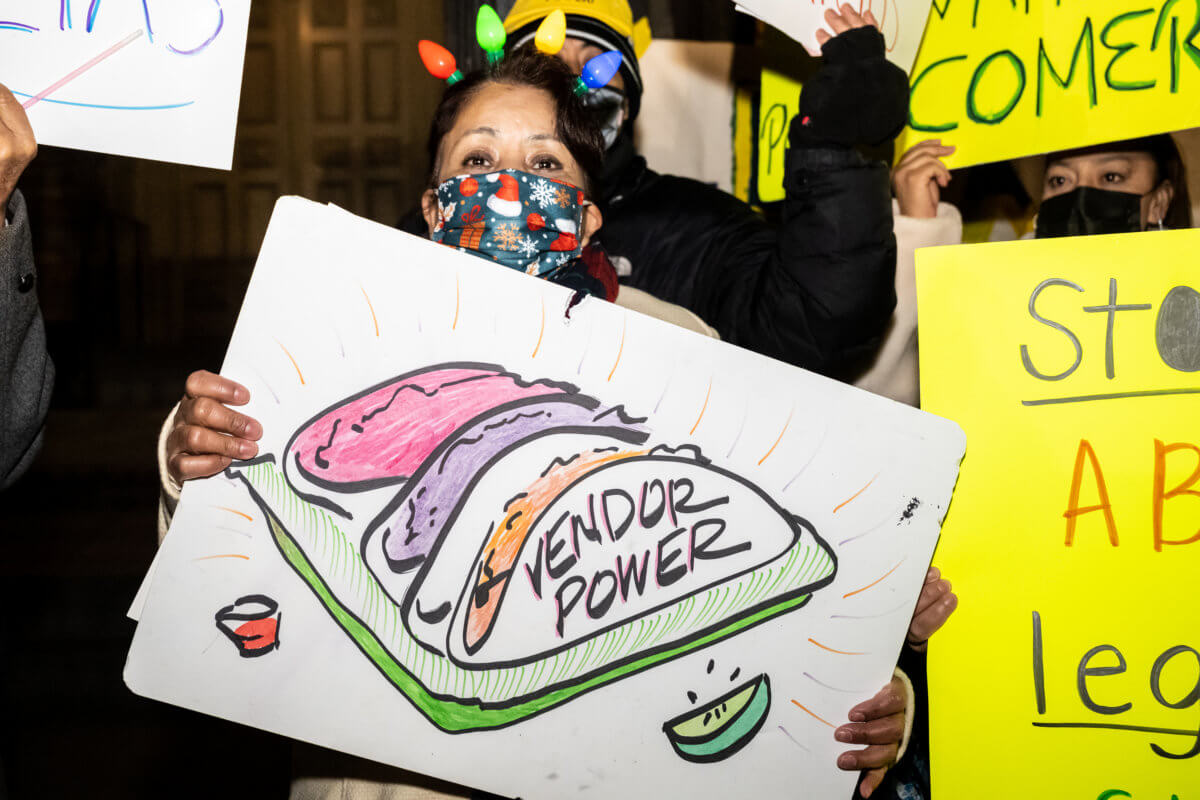

Ahmed Mohamed, legal director of the Council on American-Islamic Relations (CAIR-NY), called the bill a social justice issue and a step forward to fairness and justice for street vendors.
“What is happening to vendors now and what’s been happening to vendors for the last 40 years is unjust and it’s criminal,” Mohamed said. “We have to end that unjust and unfair treatment.”
Eliana Jaramillo has been a food vendor for 38 years, providing for her family. She explained that it had become more challenging for vendors to do business because of the increase in tickets and stiff fines, with the money they make selling their products going toward the summonses.
“As a street vendor, it is very relevant to have a license,” Jaramillo said. “We are essential for the economy of this country. We generate profits that become investments for the city.”
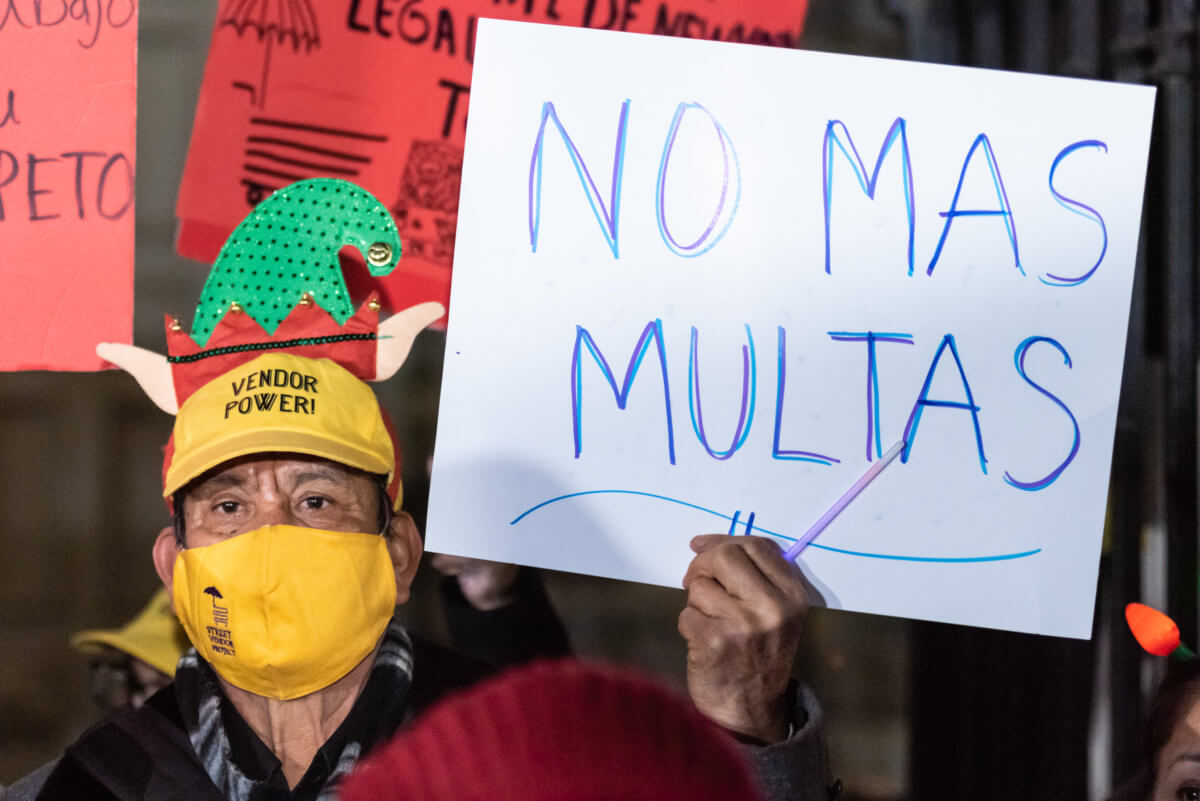
Street vendors advocates say it remains nearly impossible to operate legally due to a legislative cap on the number of vending licenses available, which is currently at 853 total licenses for merchandise vendors, making the waitlist for licenses so long that it’s been closed for over a decade. They added that there will be 9,000 supervisory licenses available for mobile food vendors by 2032.
Advocates noted that vendors have been forced to either rent a permit from existing permit-holders on an underground market for up to $25,000, or vend without a permit, facing $1,000 fines and property confiscation.
Before their tree lighting ceremony, Emcees Hannah Towfiek of The Street Vendor Project and Aracelly Cantos of Make the Road New York welcomed street vendors who decorated the tree with summonses they received in the past year alone.
“You know we’re in the holiday season,” Towfiek said. “These people are paying for tickets instead of paying for presents to give to their kids or food to put on the table for the holidays.”
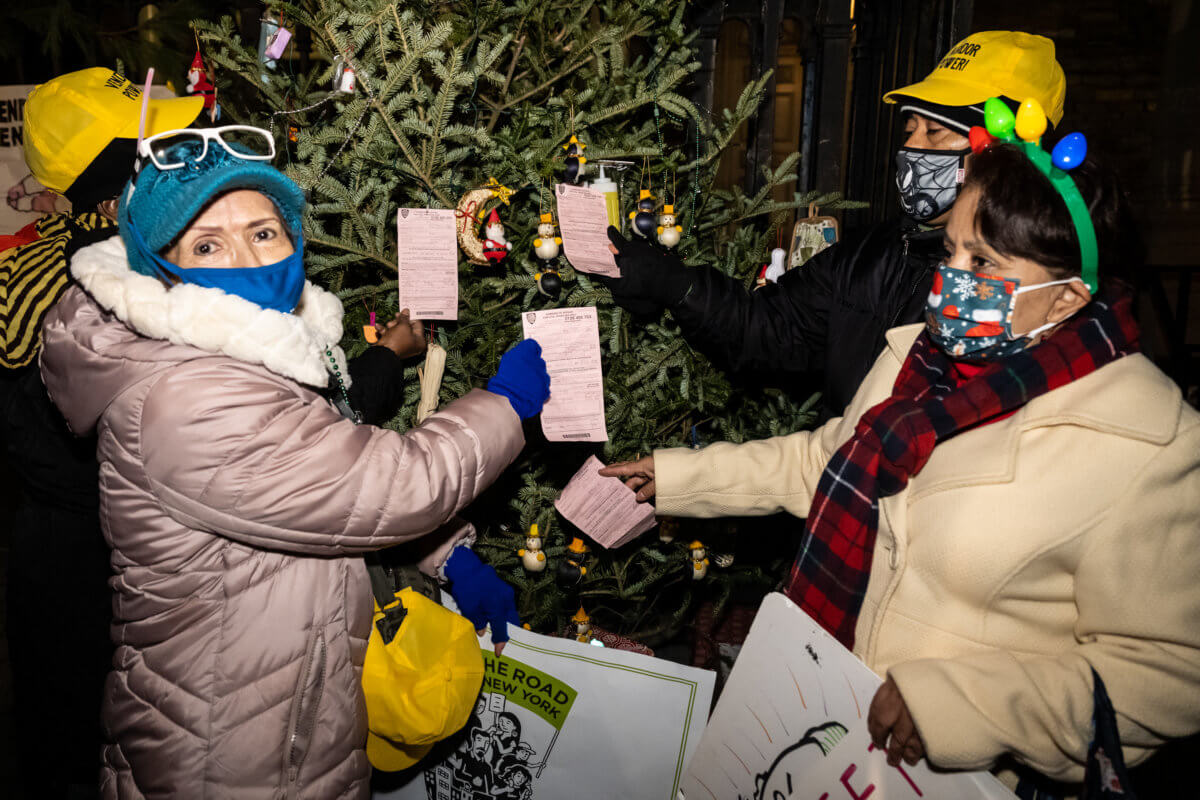
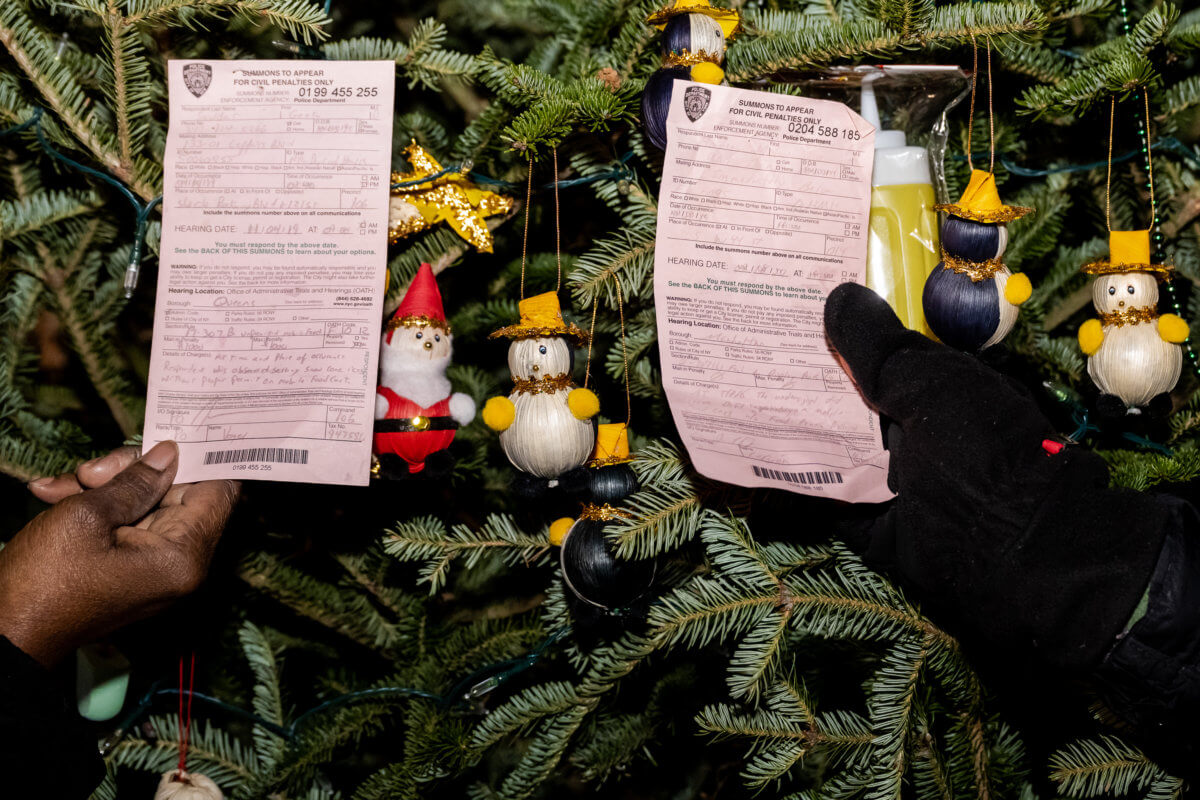
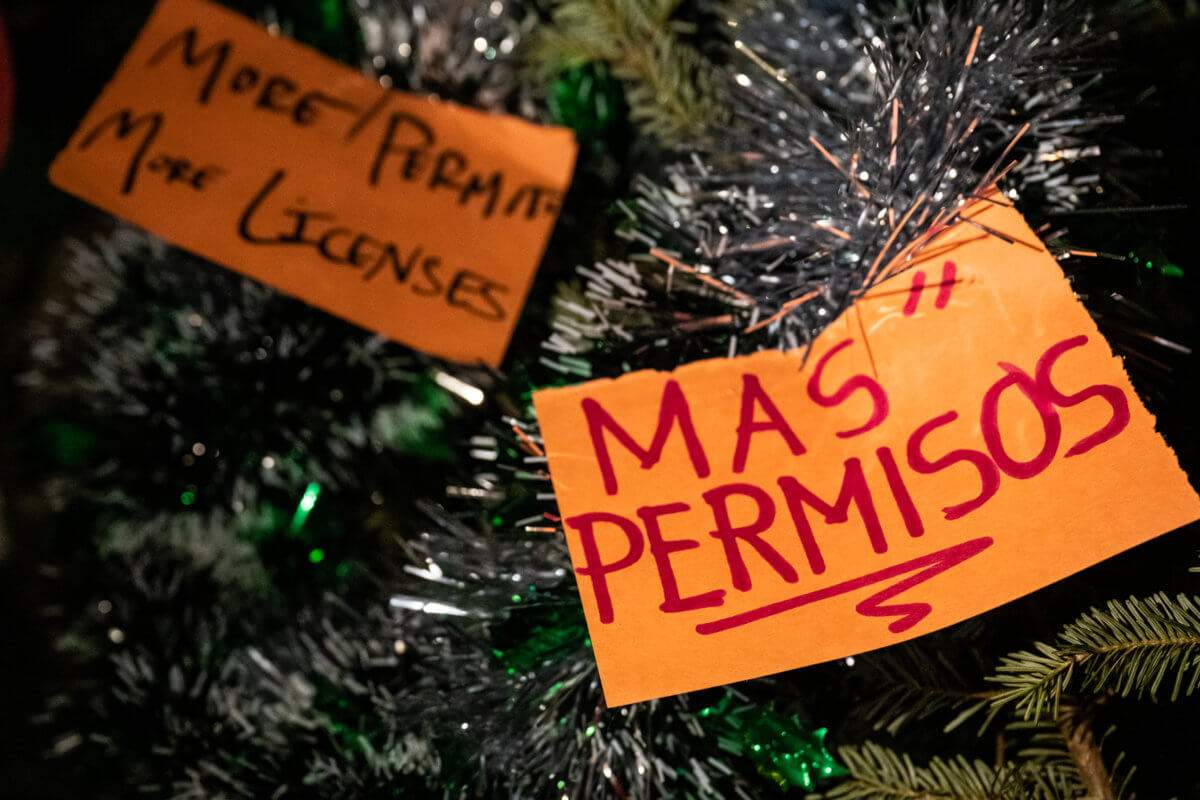
The legislation is currently in the Senate’s Cities Committee. It currently has six Senate co-sponsors and 25 Assembly co-sponsors.

